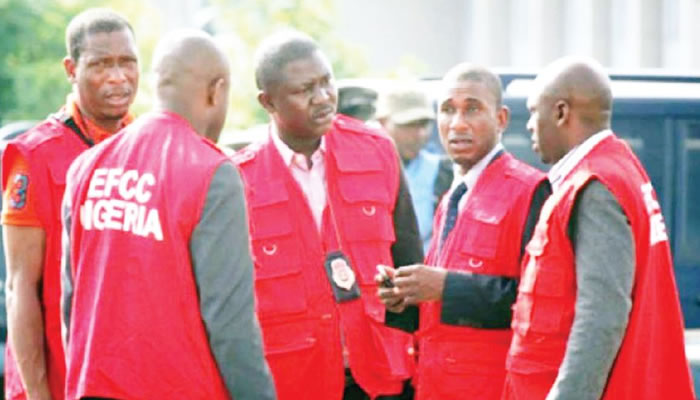Paragraph 1: Corruption Allegations and Arrests at Nigerian Refineries
The Economic and Financial Crimes Commission (EFCC) has launched a major investigation into alleged mismanagement of funds at Nigeria’s state-owned refineries. The former managing directors of the Port Harcourt, Warri, and Kaduna refineries, along with other senior officials, have been arrested in connection with the probe. The investigation centers around a staggering $2.956 billion allocated for refinery rehabilitation, with individual allocations of $1.559 billion for Port Harcourt, $740.6 million for Kaduna, and $656.9 million for Warri. Sources within the Nigerian National Petroleum Company Limited (NNPCL) allege that a substantial sum of N80 billion was discovered in the account of one of the arrested managing directors, raising concerns of significant financial impropriety.
Paragraph 2: Dashed Hopes and Operational Failures
The arrests come amid growing public frustration over the persistent underperformance of the refineries, despite repeated assurances from NNPCL regarding their operational status. Following highly publicized "revamps," both the Port Harcourt and Warri refineries have failed to meet production targets. The Port Harcourt refinery has consistently operated below 40% capacity, while the Warri refinery was forced to shut down shortly after its supposed resumption of operations due to safety concerns. This pattern of dashed hopes has fuelled public skepticism about NNPCL’s transparency and the true state of Nigeria’s refining infrastructure.
Paragraph 3: Expanding the Investigation to Former NNPCL Leadership
The EFCC’s investigation has expanded to include Mele Kyari, the immediate past Group Chief Executive Officer of NNPCL, and 13 other former senior executives. A document obtained from NNPCL reveals a request from the EFCC for information regarding the emoluments and allowances of these individuals, suggesting a wide-ranging probe into potential abuse of office and misappropriation of funds. The inclusion of Kyari and other high-ranking officials signals the seriousness of the allegations and the EFCC’s commitment to uncovering the truth behind the refineries’ financial woes.
Paragraph 4: Unmasking the Deception: Expert Analysis and Media Scrutiny
Independent investigations and expert analysis have exposed inconsistencies in NNPCL’s claims about the refineries’ operational status. Energy expert Kelvin Emmanuel has labeled the televised commissioning ceremonies as a "charade" designed to mislead the public. He points to the lack of essential refining units, the dilapidated state of crucial pipelines, and the continued reliance on imported fuel as evidence of NNPCL’s deceptive practices. Media reports have also highlighted significant discrepancies between NNPCL’s publicized figures and the actual production output of the refineries, further eroding public trust in the national oil company.
Paragraph 5: Labor Unrest and Calls for Accountability
The situation at the Warri refinery has been further complicated by planned strike action by support staff protesting poor working conditions and unfulfilled promises of improved pay following the refinery’s supposed restart. This labor unrest threatens to further disrupt operations and highlights the broader management issues plaguing the refineries. Meanwhile, industry stakeholders, including the Independent Petroleum Marketers Association of Nigeria (IPMAN) and the Petroleum Products Retail Outlet Owners Association of Nigeria (PETROAN), have expressed concerns about the refineries’ performance and called for a thorough investigation into the alleged mismanagement.
Paragraph 6: Questionable Contracts and Systemic Failures
Experts have raised serious questions about the contracting process for the refinery renovations. The decision to bypass the original Japanese builders due to alleged security concerns and instead award contracts to other firms at significantly higher costs has drawn criticism. The lack of a functional pipeline to supply crude oil to the Kaduna refinery further underscores the flawed planning and execution of the rehabilitation projects. The cumulative effect of these failures has led to significant financial losses and a deepening sense of public frustration with the management of Nigeria’s vital oil resources.














